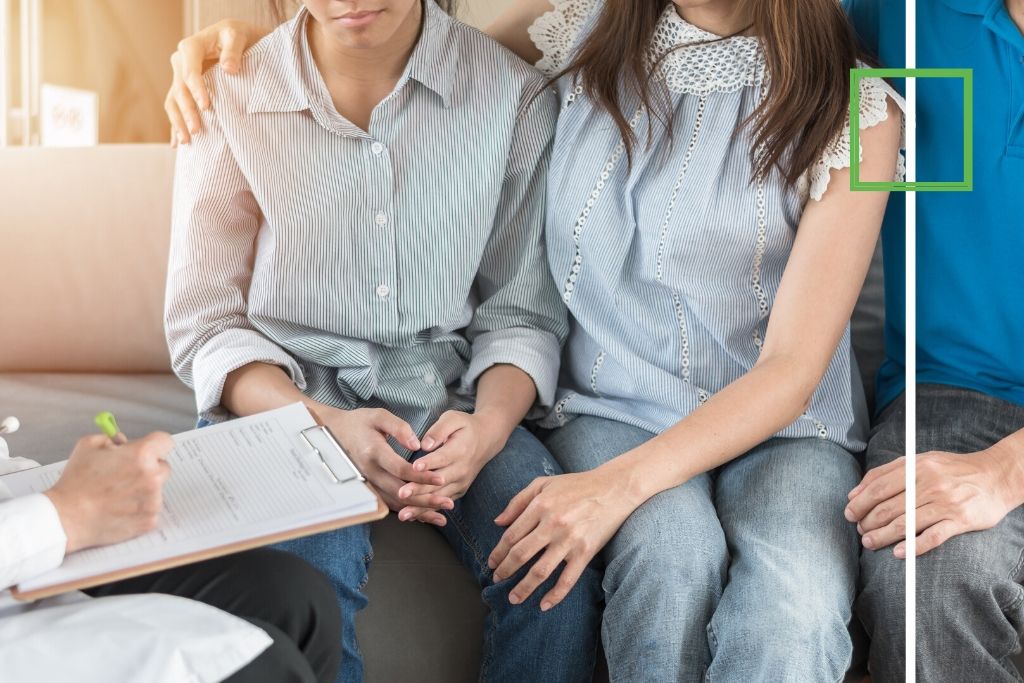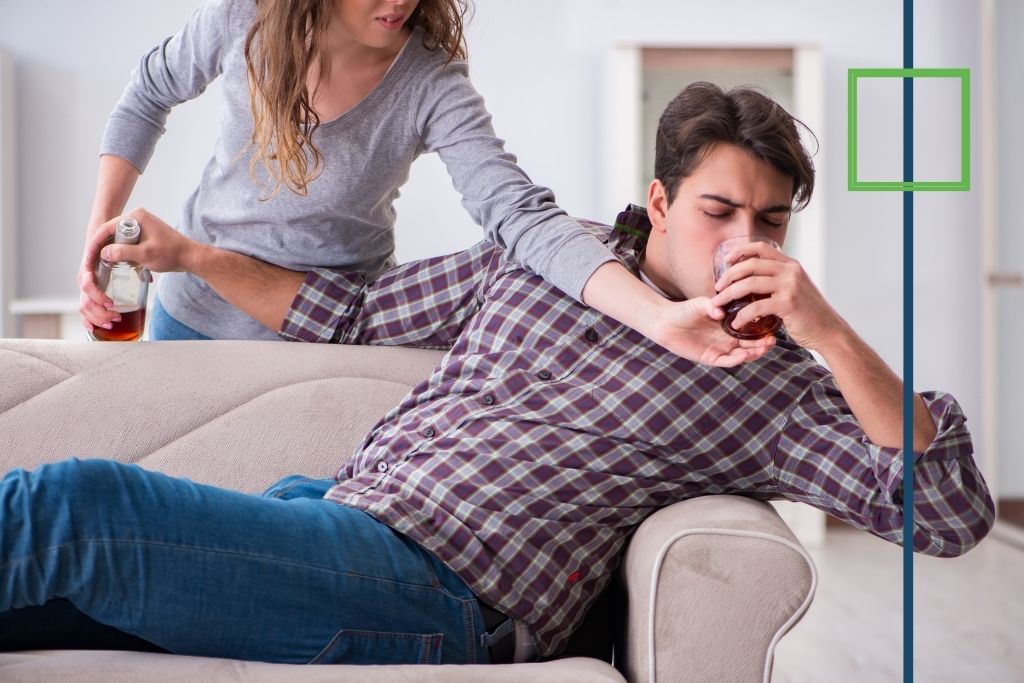What it’s Like Loving an Addict?
The experience of loving a person struggling with drug addiction can be a little different for everyone. However, there are some known commonalities that most people say they share. First, when you love an addict, you must understand that their drug addiction behavior takes importance over everything else, including you. Loved ones can start to take it personally, and it understandably breaks them deeply to feel as if the addicted person they love only cares about the alcohol or drugs. However, the addict’s brain drives them toward setting the drugs or alcohol at the top of their priority list [1].
Please remember that no matter what an individual says or promises, they are only motivated by their hunger to continue abusing drugs, and there’s not much of anything you can do to change that. Moreover, when you love an addict, they are going to cheat, steal and lie to get what they want, which is more alcohol or drugs.
They can be manipulative and charming when it serves their purposes, and as the loved one, it’s critical that you understand that it is nothing more than just that: manipulation. When you love a drug addict, you may always feel that you’re on edge, or agitated when that dreaded phone call is going to come.


Get Your Life Back
Find Hope & Recovery. Get Safe Comfortable Detox, Addiction Rehab & Mental Health Dual Diagnosis High-Quality Care at the We Level Up Treatment Centers Network.
Hotline (877) 378-4154What Can You Do When You Love an Addict?
It may hurt, but it’s true, there’s very little you can do, and you certainly can’t fix the person. Drug and alcohol addiction is a mental disease, and there’s no amount of begging or threatening that’s going to stop the problem. Instead, one of the best things you can do when you love a drug addict is made sure you’re not enabling them. Enabling a drug addict refers to scenarios or behaviors where you’re withdrawing consequences from the behaviors of the drug addict. It can be as straightforward as lying for the person or covering for them.
Once you’ve pinpointed how you are enabling the addict, you can begin establishing boundaries and outline consequences. Then, one of the only genuine steps you can take to help an addict is to orchestrate an intervention and arrange for them to go into drug rehab.
How Addiction Impacts the Whole Family?
We all refer to drug addiction as a family disease because the suffering, turmoil, and ups and downs involve not only the addicted individual but the whole family. Partners or spouses of a substance abuser are frequently on the frontlines, and the effects of drug addiction can be quite devastating to their mental, emotional, and even physical health.
If you are the partner of a drug addict, you are most likely to undergo an immense amount of emotional pain as you watch your loved one fall deeper into the throes of drug addiction. You will surely try to help them clean up their messes, take on the stress of their drug addiction, or at least try to solve problems (legal, financial, personal) connected to their drug addiction.
It is really tempting to share and try or carry the burden of their drug addiction and guard them against future harm, but your loved one is actually the only one who has the power over their drug addiction. Definitely, you can attempt to encourage them to accept drug rehab. However, eventually, they are accountable for their own life. Do not take on the extreme weight of thinking that you are in control of their drug addiction or you are to blame for their drug abuse.
The most crucial thing you can do as a spouse or a partner is to take care of yourself. In a study of 100 family members of drug addicts, researchers found that those who coped with their loved one’s drug addiction by quietly tolerating their behavior had the lowest scores of psychological well-being.
Get Help. Get Better. Get Your Life Back.
Searching for Accredited Drug & Alcohol Rehab Centers Near You? Or Mental Health Support?
Even if you have failed previously, relapsed, or are in a difficult crisis, we stand ready to support you. Our trusted behavioral health specialists will not give up on you. Call us when you feel ready or want someone to speak to about therapy alternatives to change your life. Even if we cannot assist you, we will lead you wherever you can get support. There is no obligation. Call our hotline today.
FREE Addiction Hotline – Call 24/7How to Let Go of a Drug Addict? – Stop Enabling
Enabling is a word that is frequently used when talking about how partners, spouses, or family members interact with their addicted loved ones. However, many individuals are uncertain of what it really means and how it displays in a relationship involving someone abusing alcohol or drugs.

Enabling means that the adverse consequences of another person’s negative behavior are removed or softened, which, in turn, encourages the behavior to continue. For example, if your spouse, partner, or loved one stays out all night and has to wake up early to meet up with friends, enabling would be waking them up or helping them get out of bed [2].
By allowing your loved one to experience the natural consequences of being late and having upset friends, you are helping them face the unpleasant and stressful consequences of what it means to live a life dictated by alcohol and drugs. Having to confront these consequences can be possibly lifesaving for the addicted person.
When your loved one is abusing drugs or alcohol, it can be challenging to know how to handle their behavior. First, keeping positive behavior can help move your loved ones in the right direction. For example, if they say no to drugs or drinking so they can attend an important family function, you can acknowledge how thankful you are for their sobriety. As best you can, remember to promote any of their positive behaviors with a corresponding positive affirmation or action.
Putting a Stop to Enabling Behaviors
How you react to negative behaviors makes a huge difference in your loved one’s relationship with drugs or alcohol. In most relationships, partners have an unspoken language of punishing each other with eye-rolling, yelling, scoffing, or giving the cold shoulder. Still, they may find it challenging to let natural consequences happen. As a spouse, your intuition is likely to protect your partner from embarrassing themselves in a public place, missing work, getting sick. Though letting them suffer the negative consequences of their harmful behaviors is much more effective.
If you protect your spouse from handling the painful consequences of their actions, there is no reason they should stop using alcohol or drugs, and the behaviors will persist. But, of course, you should interfere in some instances, for example, if your spouse is trying to drive while intoxicated.
Taking care of your loved one might seem like an act of kindness. However, it is harmful to their wellbeing in the long run, as you remove the negative consequences of their behaviors. Therefore, you are unintentionally reinforcing your loved one’s drug abuse.
Breaking enabling behavior can be pretty challenging for a mother or father, as seeing your child in pain can be quite hard. Nonetheless, by continuing to “support” your adult child, you are both reinforcing harmful conduct and inhibiting their independence. This may be especially true if, as a parent, your relationship with your son or daughter is one of a codependent nature.
First-class Facilities & Amenities
World-class High-Quality Addiction & Mental Health Rehabilitation Treatment
Rehab Centers TourRenowned Addiction Centers. Serene Private Facilities. Inpatient rehab programs vary.
Addiction Helpline (877) 378-4154Proven recovery success experience, backed by a Team w/ History of:
15+
Years of Unified Experience
100s
5-Star Reviews Across Our Centers
10K
Recovery Success Stories Across Our Network
- Low Patient to Therapist Ratio
- Onsite Medical Detox Center
- Comprehensive Dual-Diagnosis Treatment
- Complimentary Family & Alumni Programs
- Coaching, Recovery & Personal Development Events
How to Let Go of a Drug Addict? – Boost Your Emotional Health
There are steps you can help to improve your emotional health while living with the high levels of stress typical to loving a person struggling from a chronic disease such as substance use disorder. These include practicing self-compassion, setting healthy boundaries, and letting go of the past [3].
When You Need a Break?
We all want to be heroes for our families and friends. If they’re in difficult situations, we’ll go to extraordinary lengths to help them. Many of us will offer our own happiness and help to help others. But being a caregiver can be emotionally and physically draining. Even if you’re willing to sacrifice your own safety and health for your loved ones, you should remember that you can’t help them if you’re drained and tired.
You can be better support for your loved one if you take a break and make sure you’re taking care of yourself and your responsibilities. Let that person know that you don’t have the energy to provide support right now, but that you’re committed to getting your life together so you can give support once he or she completes a treatment program.
When You Stop Caring?
Even though it may be hard to believe, you can develop apathy toward loved ones with drug addiction. It’s difficult to love somebody who mistreats us or others. Their actions may harm your relationship to the point that you quit caring.
You aren’t obligated to help a person that you don’t care about. In fact, continuing to give energy and time to individuals who you feel indifferent toward may be problematic. You may be more likely to say things that hurt them or lash out at them. Neither you nor the person with the addiction needs that.
When to Let Go?
Unfortunately, the world of drug and alcohol addiction is a dangerous place. Individuals who use drugs may interact with dangerous individuals. They usually put themselves in dangerous situations to get the drugs that they need to stop cravings.

Drugs and alcohol can turn your loved ones into violent individuals. The drugs disrupt emotional regulation and judgment, making individuals with drug addictions short-tempered.
If another person is putting you in risky and dangerous situations, it’s time to make a change. If they verbally, physically, or emotionally harm you, do what you need to do to protect yourself and ensure your safety. You also have a responsibility to protect other family members and friends if the person is endangering them.
World-class, Accredited, 5-Star Reviewed, Effective Addiction & Mental Health Programs. Complete Behavioral Health Inpatient Rehab, Detox plus Co-occuring Disorders Therapy.
CALL (877) 378-4154End the Addiction Pain. End the Emotional Rollercoaster. Get Your Life Back. Start Drug, Alcohol & Dual Diagnosis Mental Health Treatment Now. Get Free No-obligation Guidance by Substance Abuse Specialists Who Understand Addiction & Mental Health Recovery & Know How to Help.
How to Let Go of a Drug Addict You Love?
You may come to a point in your life where you have to let go of an addict you love. This is usually after they’ve refused drug rehab, or continued to use drugs despite your attempts to create boundaries and consequences. Unfortunately, learning how to let go of a drug addict you love is much easier said than done.
There are some actions you can take once you have decided the time has come to let go of a drug addict you love. First, you will need to isolate yourself, both emotionally and physically, from that person. During this period, it’s crucial that you find a strong support system because you will need it. Usually, loved ones of a drug addict will join a group of other individuals whose loved ones are drug addicts.
When you do that, it can help you move ahead in a productive and positive way, and also understand that you’re not alone. During this period you will also need to make a list of things that you know you will have to change as part of your goal of letting go of an addict you love.
If you stumble upon some of the commitments you make to yourself during this period, it’s okay, and you can resume moving forward without being too hard on yourself. What’s most important as you learn how to let go of a drug addict you love is simply to do your best.
You should also attempt to find things that you enjoy doing for yourself, and you should work on building the life that you want without the involvement of that person.
How to Let Go of a Drug Addict? – Ask for Support
Once your loved one is ready to begin the journey on the road to recovery, there are several ways you can help and support them during the process. First and foremost, it is crucial to find the right drug abuse treatment program for their needs. There are many drug rehab centers offering a variety of services, so take some time to research the benefits of addiction treatment, the type of programs available.
Look for a trusted treatment facility that provides evidence-based programs aligned with your loved one’s specific circumstances. For example, do you believe your loved one might have other co-occurring mental health conditions such as anxiety or depression? Seek a program that has the capability to address mental health disorders as well as an addiction such as a dual diagnosis treatment program.
Ultimately, when you’re analyzing how to let go of a drug addict you love, as tough as it may be you have to let go of fear. Loving an addict frequently means that you’re tormented with persistent fear, and that can lead you to feel hopeless or depressed. You have to try and work on letting go of those feelings and taking care of yourself while moving forward.
If you or someone you care about is struggling with alcohol or drug addiction, please reach out to a drug abuse counselor today to explore your treatment options. Call us today here at We Level Up New Jersey to get into proper treatment. Above all, recovering from a substance use disorder does not need to be overwhelming or burdensome.

Experience Transformative Recovery at the We Level Up Treatment Center.
See our authentic success stories. Get inspired. Get the help you deserve.



Start a New Life
Begin with a free call to an addiction & behavioral health treatment advisor. Learn more about our dual-diagnosis programs. The We Level Up treatment center network delivers various recovery programs at each treatment facility. Call to learn more.
- Personalized Care
- Caring Accountable Staff
- World-class Amenities
- Licensed & Accredited
- Renowned w/ 5-Star Reviews
We’ll Call You
Sources:
[1] NIDA – https://www.drugabuse.gov/publications/principles-drug-addiction-treatment-research-based-guide-third-edition/frequently-asked-questions/how-can-family-friends-make-difference-in-life-someone
[2] SAMHSA – https://www.samhsa.gov/families
[3] NIAAA – https://www.drugabuse.gov/publications/principles-drug-addiction-treatment-research-based-guide-third-edition/frequently-asked-questions/where-can-family-members-go-information-treatment